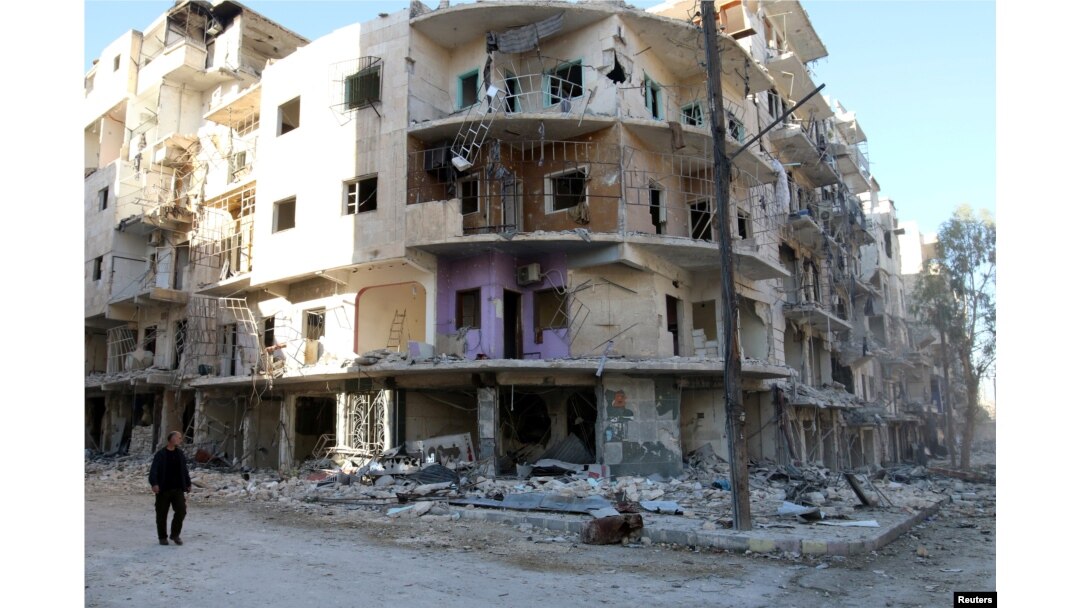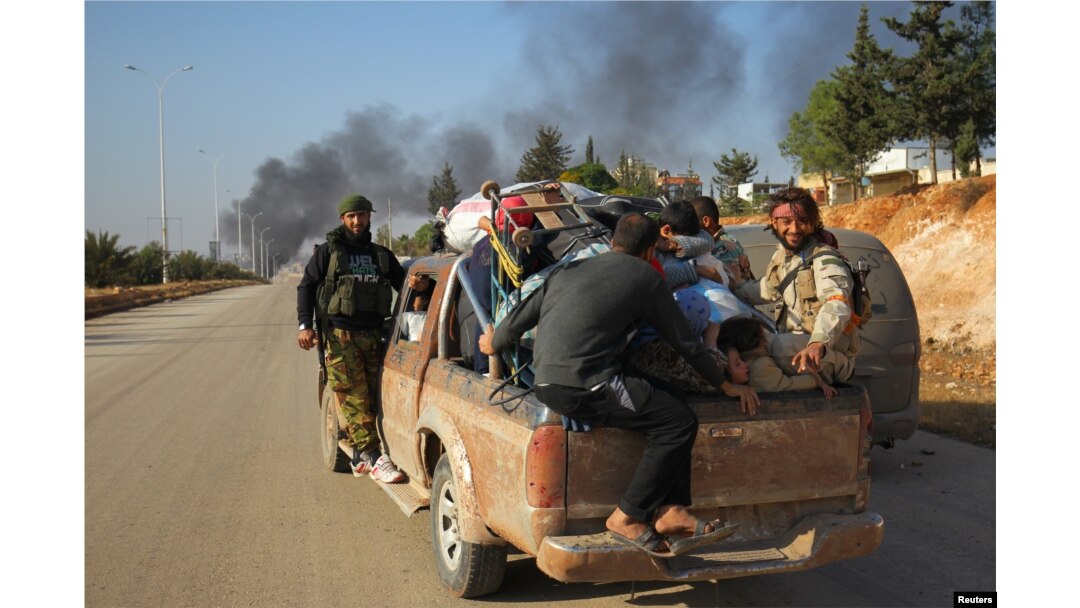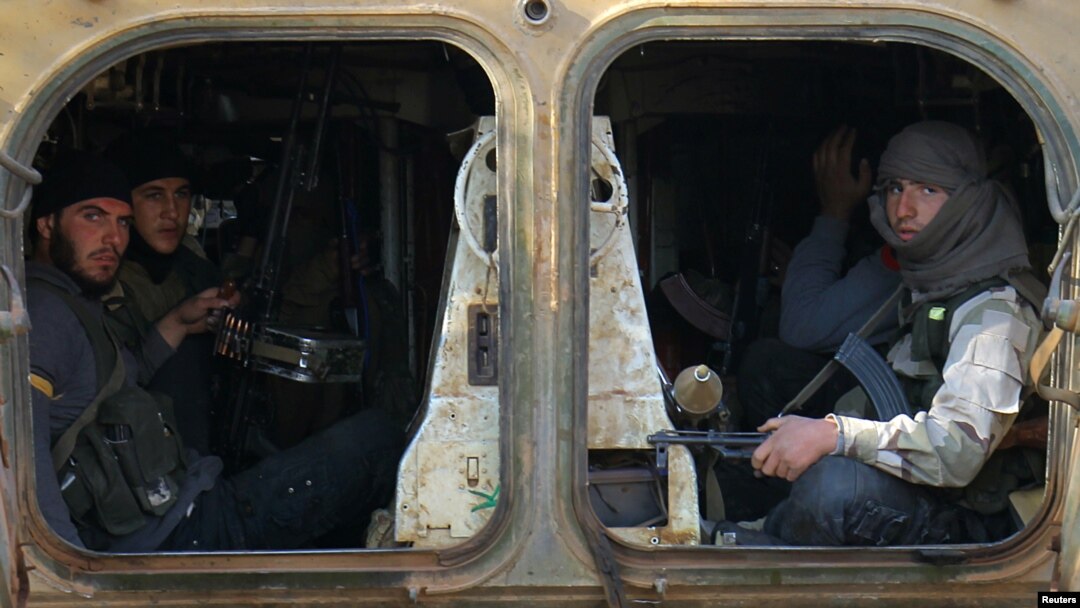The United Nations is warning the Syrian government and rebel forces that they may be guilty of war crimes in the divided northern Syrian city Aleppo.
Government troops have been trying to take control of rebel-held neighborhoods in the city’s east, carrying out a siege that cut off the area from food and humanitarian aid, while airstrikes hit rebel strongholds.

FILE - A man walks past damaged buildings in the rebel held besieged al-Sukkari neighbourhood of Aleppo, Syria, Oct. 19, 2016.
In response, rebel forces have tried to break the siege by intensifying attacks on western Aleppo, which is under Syrian government control. As a consequence, civilian casualties are mounting.
The United Nations says in the past few days, more than 40 people have been killed and many injured.

Rebel fighters ride a pick-up truck with civilians who fled areas of conflict in Dahiyet al-Assad, west Aleppo city, Syria, Oct. 30, 2016.
Rebel rockets hit civilian areas
U.N. Office for the Coordination of Humanitarian Affairs spokesman Jens Laerke says this was due to the high number of rockets indiscriminately launched by armed opposition groups on civilian areas in western Aleppo.
‘"They also note that at the same time, there are 275,000 people that remain trapped in eastern Aleppo that is under siege, no aid coming in, no people going out, unfortunately,” Laerke said.
Smoke rises near a damaged road in Dahiyet al-Assad, west Aleppo city, Syria, Oct. 30, 2016.
The spokesman also condemned a tank strike Sunday on a building in western Aleppo, which houses the U.N. hub in the region. The U.N. said the attack directly targeted the building, which has long been known as a U.N. office.
U.N. human rights office spokeswoman Ravina Shamdasani says the high number of civilian casualties suggests armed opposition groups are violating international humanitarian law by launching indiscriminate attacks on civilian areas.
“The reported use of ground-based missiles along with the use of armored vehicles loaded with explosives used in an area containing more than one million civilian inhabitants is completely unacceptable and may constitute a war crime.”
Government shelling of Western Aleppo continues
Shamdasani says shelling of opposition-held eastern Aleppo by government forces and their allies reportedly is also continuing. This despite statements by the Russian Ministry of Defense that Syrian and Russian air forces are observing a moratorium.
She notes strikes against hospitals, schools, marketplaces, water facilities and bakeries are commonplace. She warns the strikes may amount to war crimes if proven to be intentional.


